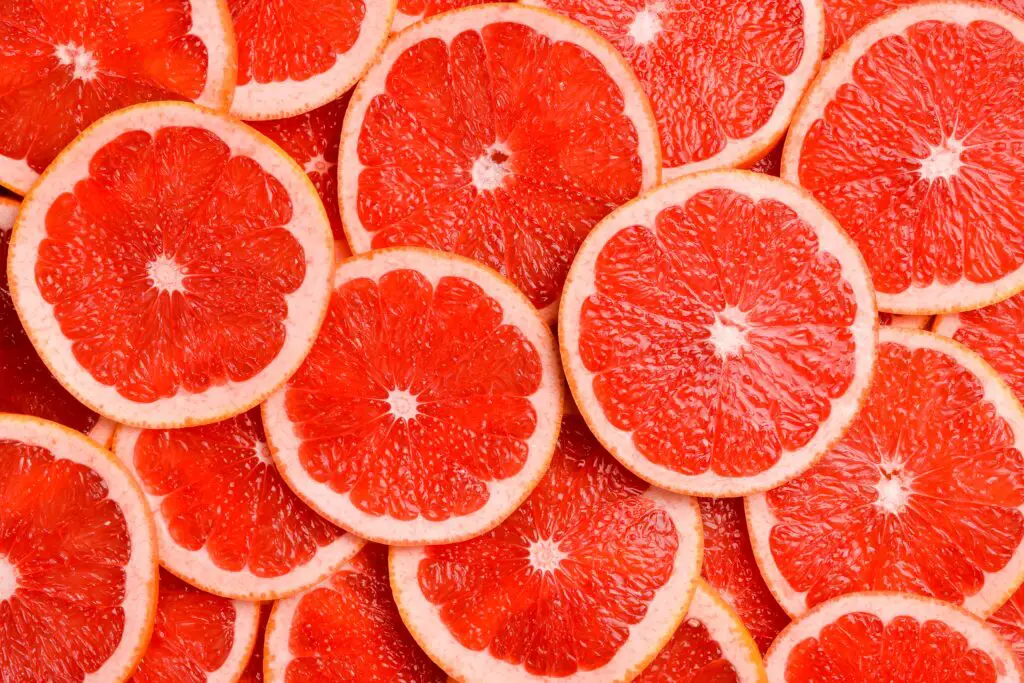1. Grapefruit Diet

For decades, the grapefruit diet was touted as a magical weight-loss tool. The idea was simple: eat half a grapefruit with every meal to burn fat faster, thanks to its supposed fat-burning properties. This diet gained massive popularity in the ‘70s and ‘80s, with claims that grapefruit could help you shed pounds without much effort. Unfortunately, there was little science to back up these bold assertions, and many dieters found that the promise of rapid weight loss was more myth than reality.
While grapefruit is a healthy fruit that offers a good dose of vitamin C, there’s no magic behind its ability to target fat. People who followed the diet often lost weight initially, but it wasn’t because of the fruit—it was more likely due to drastically cutting calories and restricting food groups. Over time, the diet’s unsustainable nature led many to regain the weight once they returned to normal eating habits.
2. Cabbage Soup Diet

The cabbage soup diet was a go-to for those looking for a quick fix, promising rapid weight loss by eating large quantities of low-calorie cabbage soup. This fad, often associated with the ‘80s, was designed for short-term use, claiming that it would help you shed 10 pounds in just seven days. While the idea of eating mostly soup sounds harmless enough, the plan was incredibly restrictive and lacked essential nutrients. It didn’t take long for people to realize that the weight loss wasn’t due to some magical cabbage, but rather extreme calorie restriction.
Unfortunately, any weight lost on the cabbage soup diet was usually temporary, with many dieters quickly regaining the pounds once they returned to normal eating habits. The diet also led to extreme hunger and a lack of energy, making it a tough and often unhealthy option for long-term weight management. Despite its fleeting success, the cabbage soup diet faded into obscurity, leaving behind a legacy of frustrated dieters.
3. The Cookie Diet

Yes, you read that right—cookies marketed as a weight loss solution. The Cookie Diet, introduced in the early 2000s, promised to help you lose weight by eating specially designed cookies that were low in calories but high in protein and fiber. The idea was that you could eat six of these cookies per day, with one low-calorie meal, and still lose weight. While it sounded too good to be true, many were intrigued by the idea of losing weight while still indulging in cookies.
But just like any restrictive diet, the Cookie Diet didn’t deliver lasting results. While the cookies themselves might have been low in calories, the diet left little room for variety and didn’t encourage healthy eating habits. Once people stopped eating the cookies, they often found themselves struggling to maintain their weight, and the inevitable rebound occurred. It turns out that the promise of weight loss through cookies was just too sweet to last.
4. The Maple Syrup Diet

The Maple Syrup Diet, also known as the Master Cleanse, has been around for decades, often touted as a detoxifying cleanse that promises weight loss and improved health. The plan involves drinking a mixture of maple syrup, lemon juice, and cayenne pepper while abstaining from solid food for several days. Advocates of the diet claim it cleanses the body and melts away fat, but the reality is far less glamorous.
While the cleanse might lead to temporary weight loss due to extreme calorie restriction, it’s not sustainable and can be dangerous. The lack of nutrients and the body’s reaction to prolonged fasting can leave you feeling weak and fatigued. Though many have tried this trendy cleanse, the weight loss was usually just water weight, and the diet left people feeling hungry, deprived, and generally worse off once they resumed normal eating.
5. The Lemon Detox Diet

Much like the Maple Syrup Diet, the Lemon Detox Diet, or Master Cleanse, gained popularity in the early 2000s as a quick way to detox and lose weight. The plan involves drinking a mixture of lemon juice, maple syrup, and cayenne pepper, while avoiding all solid food for a week or more. While the lemony concoction may sound refreshing, it lacked the proper nutrients your body needs to function properly.
People who tried the Lemon Detox Diet often lost weight quickly, but this was mostly due to severe calorie restriction rather than any magical fat-burning properties of lemon. The lack of protein, healthy fats, and other essential nutrients caused people to feel sluggish and deprived. Once the cleanse ended, most dieters regained the weight they lost, making it clear that the diet’s claims of weight loss miracles were nothing more than a squeeze of lemon and a dash of hope.
6. The All-Vanilla Diet

Believe it or not, there was once an all-vanilla diet that promised weight loss with little more than vanilla-flavored foods. The idea was that eating only vanilla-flavored foods would help control cravings and promote weight loss, thanks to the soothing, sweet nature of the flavor. The plan didn’t involve any actual science behind it, but that didn’t stop people from trying it, hoping that vanilla could somehow work its magic.
While the diet may have worked for a short time by limiting food options and cutting calories, it wasn’t a balanced approach to health. Like other fad diets, it lacked the necessary nutrients for long-term well-being and led to feelings of deprivation. The weight lost on the all-vanilla diet was often regained once people returned to eating normally, proving that no amount of vanilla could sustain a healthy, balanced lifestyle.
